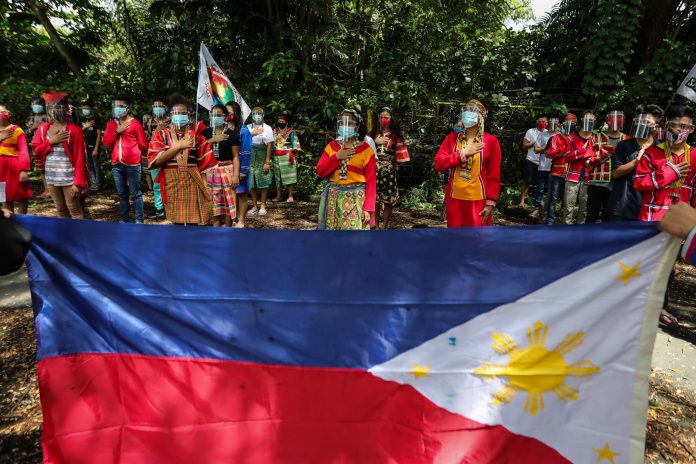Displaced tribal children who are temporarily staying in the Philippine capital have started to attend classes on October 5 away from their homes.
Most of the displaced tribal students used to study in the 178 schools for indigenous children that were forcibly closed by the government in the southern Philippines in the past two years.
Rius Valle, spokesperson of the Save Our Schools Network, said they have decided to resume classes despite oves of the Department of Education to “disenfranchise” the students.
He said that while the country struggles against the coronavirus pandemic, the tribal children have been facing “a bigger scourge in their lives for the past years.”
Valle said at least 5,500 tribal students in different regions in Mindanao have been affected by the shutdown of the tribal schools.
This year, 23 tribal schools, run by the Community Technical College of Southeastern Mindanao, Mindanao Interfaith Services Foundation, Inc., and Assumption Interfaith Academy Foundation, Inc. were closed.
The closure stemmed from the non-renewal of permit by the Education department or by the “destruction of school infrastructure” due to military operations.
Tribal schools and organizations have been under the government’s scrutiny for the past years over alleged connections with communist rebels.
State security forces have accused tribal schools, which are mostly located in hinterland villages, as breeding grounds of communist guerrillas.
Valle said the Education department, instead of protecting the welfare of tribal students, “has insisted on shutting down tribal schools” that were operating inside the tribal communities.
He said the moves to close down the schools occurred during the time that the country’s education system is facing a great challenge because of the coronavirus pandemic.
The coronavirus pandemic has forced the country’s educational system to adopt measures that will lessen face-to-face interactions to prevent the spread of the disease.
The Education department introduced “blended learning,” or the use of online teaching and other modular methods, to allow students and teachers to stay at home.
Valle said the displaced tribal school “will continue to educate the indigenous children in the midst of the pandemic and the attacks that we are experiencing.”









